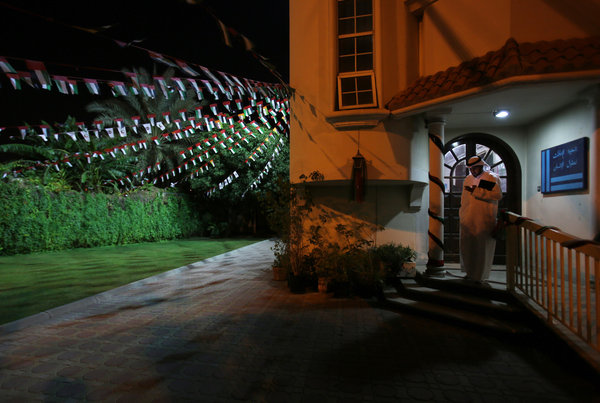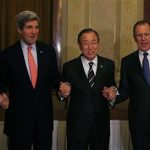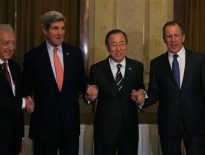The highest court in the United Arab Emirates on Tuesday convicted 30 Islamists of establishing an international branch of the banned Muslim Brotherhood in the wealthy Persian Gulf federation, a case slammed by rights advocates as politically motivated and marred by a catalog of legal abuses.

Ten Emiratis and 20 Egyptians were given sentences ranging from three months to five years. There is no right to appeal.
Charges included allegations that the men stole classified documents, operated a secret organization and collected aid and donations without government permission, according to the charge list and sentencing details published by Gulf News.
The Muslim Brotherhood, the Islamist political party that brought former Egyptian President Mohamed Morsi to power for one turbulent year, is banned in the UAE, Kuwait and Saudi Arabia. Those gulf countries have lavished billions in aid on Egypt’s interim, military-backed rulers since Morsi was ousted in July after months of social unrest.
The case brought against the alleged Brotherhood activists in the UAE was part of a broader, gulf-wide crackdown on Islamists seen to be challenging entrenched Western-backed rulers, Al Jazeera news channel reported.
Amnesty International and the London-based Emirates Center for Human Rights sharply criticized the prosecutions as targeting people for their political beliefs and slammed the trials as unfair.
Said Boumedouha, Amnesty’s deputy director for Middle East and North Africa programs, called the list of judicial failings astonishing.
Arrests without judicial warrants, allegedly falsified arrest dates in court documents; months of secret detention and solitary confinement with no access to a lawyer; show that the fundamental rights of the defendants have been completely disregarded, Boumedouha said in a statement posted on the rights group’s website.
The Emirates Center for Human Rights also criticized the convictions as the result of ambiguous charges and accused the UAE rulers of persecuting political opponents.
Unfair and unjust political trials are becoming the norm in the UAE, with defendants having their fundamental rights violated and courts failing to uphold international fair trial standards, said the center’s director, Rori Donaghy.
In the absence of a proper legal process and an investigation into credible allegations of torture, these convictions lack all credibility, he said.
The rights advocates accused the Federal Supreme Court in Abu Dhabi of relying on flimsy evidence and coerced confessions, and said the defendants had been held in secret detention without access to lawyers during interrogation. Some reported having been tortured while in custody.
The downward cycle of unfair political trials in the UAE must end, Amnesty’s Boumedouha said. The authorities must conduct a thorough, impartial and independent investigation into any allegations of torture or ill-treatment committed without delay.”





